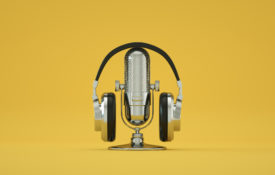-

Podcast Collection: Eight Early-Career Researchers on Their Inspirations, Methods, and Goals
The full collection of podcast interviews with recipients of the 2022 APS Janet Taylor Spence Award for Early Career Contributions.
-
Priming the Brain to Learn
The human brain is skilled at categorizing. People can quickly recognize a new variation of something they’ve seen before, like a dog, a chair, a jacket, or a lamp. We do this even when we’ve received very little explicit teaching about what distinguishes such categories. How the brain builds this category knowledge hasn’t been well understood. Drs. Layla Unger and Vladimir Sloutsky from Ohio State University designed a set of experiments to learn how incidental exposure to new things shapes later learning about categories. The experiments had two phases: an exposure phase and an explicit learning phase.
-
The Effortless Way to Dramatically Improve Your Memory, Backed by Science
Say you need to remember something important. Information from a meeting where taking notes wasn't possible. A pitch you'll make to investors. A presentation you'll make to employees. So you take mental notes, or review written notes. You study, highlight, or rehearse. If you're smart, you also sleep: According to a 2016 study published in Psychological Science, people who studied before bed, then slept, and then did a quick review the next morning not only spent less time studying, but also increased their long-term retention by 50 percent. That's the power of sleep-dependent memory consolidation.
-
Potential Recession Would Harm Mental Health: Experts
Jey Austen, a brand designer at a fintech company, lost their job about two weeks ago. But the layoff didn’t come as a surprise, said Austen, 27, who is trans and uses they/them pronouns. A market downturn in recent months has hammered the tech industry, eliciting a wave of layoffs. Austen, whose lease on an apartment in Austin, Texas ends in August, will receive three weeks of severance pay but otherwise lacks savings, they said. “Worst comes to worst, I’ll sleep in my car,” said Austen, who was making $80,000 a year. “It’s a sucky situation all around.” Compounding the stress, Austen will likely struggle to afford their usual weekly therapy appointments, they said.
-

See Open Opportunities at the National Institutes of Health in Social and Behavioral Science
Apply for Social and Behavioral Administrator positions at the National Institutes of Health.
-

Outnumbered: People Overestimate the Presence of Symbolically Threatening Groups
People commonly exaggerate the presence of certain groups simply because they are perceived as ideologically different.

